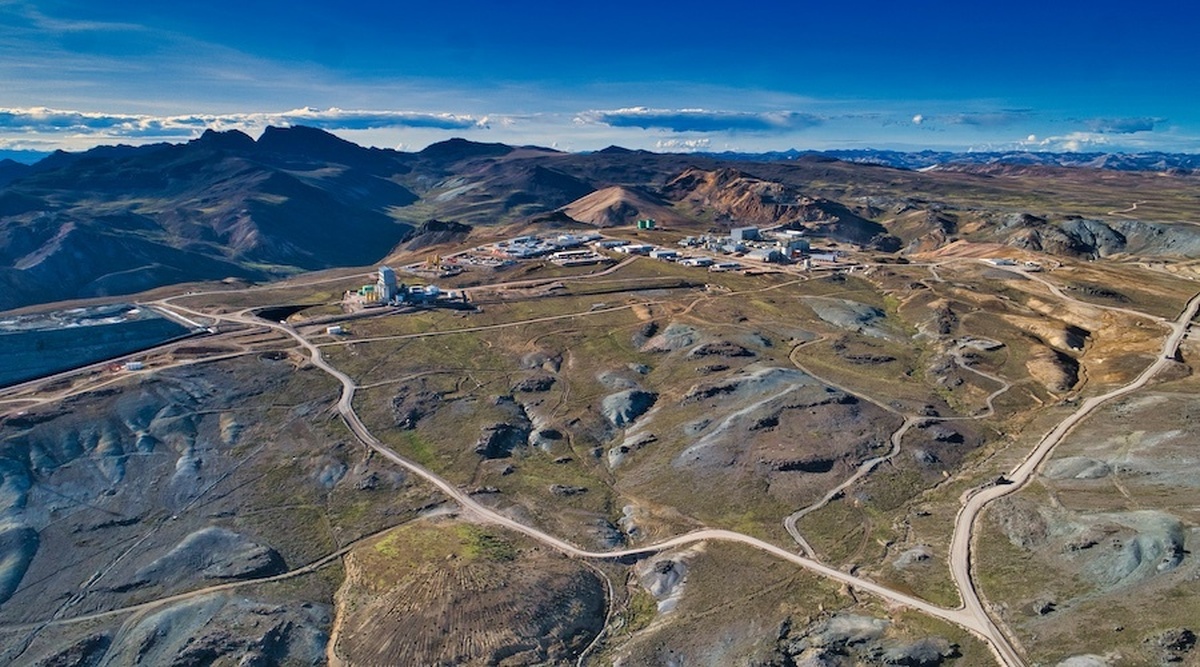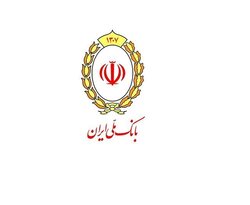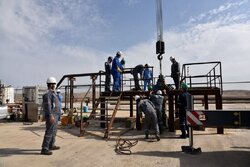
Adani Group Resumes Cargo Traffic From Iran at Indian Port

The company said it removed the ban after consultations with terminal and vessel operators, customs broker associations and importers who had agreed to adhere to security mandates, The Economic Times reported.
The Adani Group had banned the import and export of containerized cargo from Afghanistan, Iran and Pakistan at its Mundra Port on Oct. 11.
The move came less than a month after about 3,000 kilograms of heroin were seized from two containers from the port in Gujarat.
Mundra is the largest commercial port in India and emerged as the largest container handling port in the fiscal 2020-21 (surpassing JNPT) with a market share of 32% (a gain of around 5%), according to the conglomerate's latest annual report.
According to government data, the value of imports from these countries in April-July were Afghanistan $107.33 million, Iran $153.63 million and Pakistan $0.45 million.
India imports dry fruits, resins and vegetable extracts, coffee, tea and spices from Afghanistan, whole dry fruits, inorganic chemicals, rare earth metals, mineral fuels and bituminous substances are from Iran and project goods and aluminum from Pakistan.
The removal of the ban came after Indian customs wrote to the Adani Ports SEZ Ltd, questioning its move to ban both import cargo from Iran, Pakistan and Afghanistan and exports to these countries through its Mundra Port.
In a letter, the customs has communicated that the company needed an authorization from the Directorate of Foreign Trade under the Exim policy to take such a decision, a senior official told Economic Times.
"Ports are not authorized to take such unilateral decisions," an official, privy to the matter, said.
Such decisions can be authorized only by DGFT, the official said, adding that a port cannot selectively impose such a ban.
Industry bodies had also taken up the issue with the government. They had flagged the rise in shipment costs for local exporters and importers based in Gujarat that relied on Mundra Port.
Adani Ports and Special Economic Zone Limited, formerly known as Mundra Port and Special Economic Zone Limited, is India's largest private multi-port operator. APSEZ represents a large network of ports with India's largest SEZ at Mundra.
Tehran conveyed its displeasure to New Delhi, calling the banning of its consignments as an “unprofessional and imbalanced move. This was conveyed by Iranian police and narcotic drug control officers to their Indian counterparts”, the Indian Express reported.
In a statement, the Iranian Embassy in New Delhi said police and narcotic drug control authorities of India and Iran discussed and examined their “shared concerns and challenges resulting from a surge in illicit drug trafficking in the region and the ways and means of mutual cooperation and exchanges as part of the expected outcomes in this respect”.
It said “for many decades, narcotic drugs production and its organized trafficking from Afghanistan has posed a major threat to Iran, our region and the rest of the world, necessitating a non-stop and united struggle as well as genuine cooperation and partnership among all countries against this global issue”.
As an immediate neighbor of Afghanistan, Iran said it has also been “significantly impacted by other developments” in Afghanistan. It listed three major factors behind the “considerable rise of narcotic drugs production and trafficking”: “occupation of Afghanistan by foreign forces”, “infighting between various groups” and “severe poverty”.
Describing the withdrawal of US and NATO forces from Afghanistan as the main root causes of the surge in “chaos, insecurity and exacerbation of illicit drug trafficking” in the region, the statement said these are “usually ignored or underestimated”.
It said Iran has suffered from many trade restrictions and unjust sanctions and is once again being targeted unfairly through trade denial.
Calling the meeting with Indian officials a “successful dialogue”, the Iranian statement said positive outcomes would be a “better arrangement for deepening our cordial relations”.
Source: Financial Tribune


Trump weighs using $2 billion in CHIPS Act funding for critical minerals

Codelco cuts 2025 copper forecast after El Teniente mine collapse

Electra converts debt, launches $30M raise to jumpstart stalled cobalt refinery

Barrick’s Reko Diq in line for $410M ADB backing

Abcourt readies Sleeping Giant mill to pour first gold since 2014

Nevada army depot to serve as base for first US strategic minerals stockpile

SQM boosts lithium supply plans as prices flick higher

Viridis unveils 200Mt initial reserve for Brazil rare earth project

Tailings could meet much of US critical mineral demand – study

Kyrgyzstan kicks off underground gold mining at Kumtor

Kyrgyzstan kicks off underground gold mining at Kumtor

KoBold Metals granted lithium exploration rights in Congo

Freeport Indonesia to wrap up Gresik plant repairs by early September

Energy Fuels soars on Vulcan Elements partnership

Northern Dynasty sticks to proposal in battle to lift Pebble mine veto

Giustra-backed mining firm teams up with informal miners in Colombia

Critical Metals signs agreement to supply rare earth to US government-funded facility

China extends rare earth controls to imported material

Galan Lithium proceeds with $13M financing for Argentina project

Kyrgyzstan kicks off underground gold mining at Kumtor

Freeport Indonesia to wrap up Gresik plant repairs by early September

Energy Fuels soars on Vulcan Elements partnership

Northern Dynasty sticks to proposal in battle to lift Pebble mine veto

Giustra-backed mining firm teams up with informal miners in Colombia

Critical Metals signs agreement to supply rare earth to US government-funded facility

China extends rare earth controls to imported material

Galan Lithium proceeds with $13M financing for Argentina project

Silver price touches $39 as market weighs rate cut outlook




















